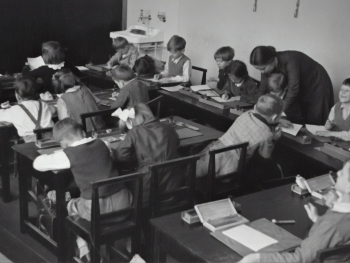
Author: Susan Perk
Date: 24 Sep 2025
When faith is not dogma, but dialogue. And when psychology is not diagnosis, but service.
Today, Christian psychology is moving beyond the walls of church offices. It is becoming a bridge between generations, cultures, and crises. One of its voices in the 21st century is Ekaterina Fakhrutdinova - a family counselor, author of the “From Heart to Heart” method, and a researcher at the intersection of psychology and theology.
Through her approach, soul care is no longer “moral instruction” but a subtle, respectful process - a space where a person can be weak, suffering, searching, and yet not broken.
Why pain is not a problem but a call to authenticity
When Fakhrutdinova speaks about family conflicts, she avoids templates. She writes academic articles reflecting on how Frankl’s logotherapy, Beck’s cognitive-behavioral therapy, and Adams’ biblical counseling can work inseparably - all for the sake of restoring the individual and relationships.
“We don’t ‘fix’ people. We create conditions in which a person can return to their own value, their own meaning, their own faith,” explains Ekaterina.
Such an approach requires not only knowledge but also particular sensitivity. She has worked with pastors, refugees, parents of children with special needs, and married couples who have endured betrayal or loss. Each time, her method has adapted - to the culture, denomination, and language of pain.
The “From Heart to Heart” Project: a method trusted by both Church and science
Ekaterina’s project is not only practical counseling but also an educational platform. It provides opportunities to train Christian counselors, conduct supervisions, and develop programs for church communities.
Her original work, combining evidence-based methods with spiritual practice, allows us to say: Christian psychology today is not a niche, but a full-fledged sphere of professional and social significance.
“Modern soul care is not a soft alternative to therapy. It is an independent path, where spirituality and science unite in respectful dialogue.”
The challenges she addresses
- Spiritual crises in times of social catastrophe
- Rethinking the role of family and marriage
- Trauma of displacement, loss, and forced adaptation
- Burnout among ministers and community leaders
- Identity struggles of youth growing up between cultures
These are the very areas where Ekaterina dares to be honest. She speaks with equal respect to Protestants, Catholics, and Orthodox believers. She sees not theological differences, but the human need for acceptance, depth, and hope.
A new culture of care: not as an expert, but as a witness
Ekaterina Fakhrutdinova’s work is not just help. It is a movement:
- For a new ethic of relating to pain.
- For spirituality free of judgment.
- For faith that heals without pressure.
- For science that listens rather than controls.
This is not a “soft approach.” It is deep, transformative work. And it deserves to be heard.




















